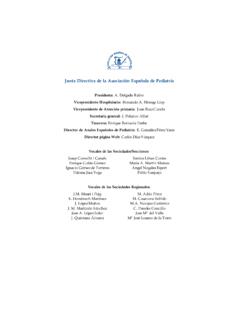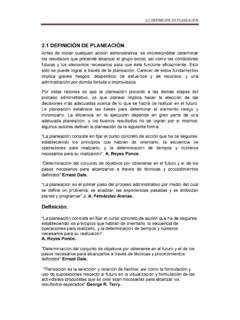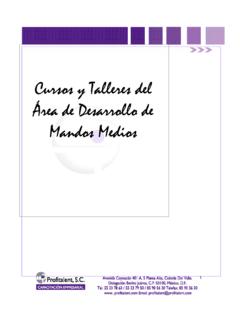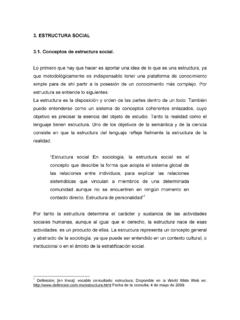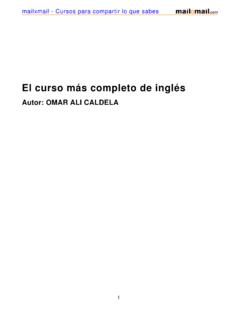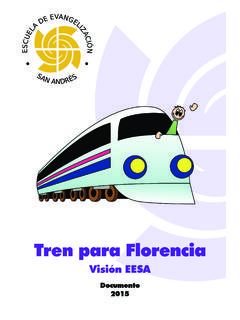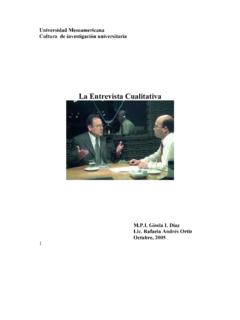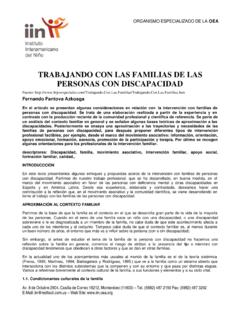Transcription of NOTICIA - Apuntes y recursos de salud y enfermeria
1 T cuidasNoticias de salud - noviembre 2006 cuidas, t cuidas flash,y el Fondo DocumentalSanitario, son proyectoslibres y Vd. libre de distribuireste en ingl s de utilidadIngl s en el entorno sanitarioRam n E. Garc a para / En un mundocada vez m s globalizado, no podemos ignorar la realidadde que muchos de nuestros pacientes no tienen al castellanocomo lengua materna. El presente documento, facilita unagu a sencilla para permitir la anamnesis e interactuar de unamanera b sica con el / RESPIRATORIO Tiene tos?: Do you have a cough?. Durante cu ntos d as ha tenido la tos?
2 : How many dayshave you had the cough?. Le sale flema cuando tose?: Do you have phlegm whenyou cough?. De qu color es la flema? Es clara? Es amarilla? Esverde?: What color is the phlegm? Is it clear? Is it yel-low? Is it green?. Tiene fiebre?: Do you have a fever?. Siente dolor en el pecho cuando tose?: Do you have painin your chest when you cough?. Ha perdido peso? Cu ntas libras?: Have you lost weight?How many pounds have you lost?. Nota: 1 libra equivalea 0,40 kilogramos. Suda por la noche?: Do you sweat during the night?. Tiene escalofr os?: Do you have chills?. Sabe usted si ha estado en contacto con una persona contuberculosis?
3 : Do you know if you have been in contactwith a person with TB?.flash Tiene falta de aire?: Do you have shortness of breath?. Le falta la respiraci n al caminar?: Do you get short ofbreath when walking?. Padece de asma? Do you suffer from asthma?. Cu ntos a os hace que padece usted de asma?: How manyyears have you been suffering from asthma?. Cu nto tiempo hace que padece de asma?: How long haveyou been suffering from asthma?. Toma usted alg n medicamento?: Do you take any medi-cine?. Es este ataque de asma peor que los otros?: Is this asthmaattack worse than the others?. Cu ndo empez la falta de aire?
4 : When did you start get-ting short of breath?. Tiene tos?: Do you have a cough?. Le duele el pecho cuando tose o respira profundo?: Doesyour chest hurt when you cough or take a deep breath?. Ha tomado medicina para el asma hoy?: Have you takenany medicine for asthma today?. Qu medicina toma, Teofilina, Prednisona, Azmacort,Ventol n?: What medicine do you take, Theophylline,Prednisone, Azmacort, Ventol n?. Usa inhalador?: Do you use in-haler?. Cu ntas veces al d a usa suinhalador?: How many times doyou use your inhaler?. Ha tomado prednisona en elpasado?: Have you taken pred-nisone in the past?
5 OndoDocumentalSanitarioFt cuidas - noviembre 2006 Frases en ingl s de utilidad Cu ndo fue la ltima vez que utiliz prednisona?: Whenwas the last time you took prednisone?. Qu piensa usted le caus el ataque? (el clima, el polvo, elejercicio, el humo del cigarrillo, enojo emocional, otra cosa):What do you think caused the attack? (the weather,the dust, the exercise, the cigarette smoke, an emo-tional upset, something else). Cu ntos ataques de asma ha tenido?: How often do youhave an asthma attack?. Cu ntas veces lo han ingresado por asma?: How manytimes have you been admitted for asthma?
6 Lo han internado en cuidados intensivos por asma en elpasado?: Have you been admitted to intensive care unitfor asthma in the past?. Fuma usted?: Do you smoke?. Qu cantidad de cigarrillos fuma al d a?: How manycigarretes do you smoke a day?. Estaba alguien fumando cerca de usted cuando empez elataque de asma?: Was someone smoking next to youwhen the asthma attack started?.Respire profundamente, por favor: Take a deep breath, ngase la m scara de ox geno: Put on your oxygen a sacarle una radiograf a del pecho: We are goingto take a chest un an lisis de sangre: You need a blood a sacarle sangre arterial a ver si necesita ox geno: Weare going to draw blood from an artery to see if youneed una muestra de flema: We need a sample ofyour necesita tratamiento: You need tiene neumon a: You have tiene gripe (catarro): You have the flu (a cold).
7 Usted tiene asma: You have tiene tuberculosis: You have EN EL PECHOMu streme d nde tiene el dolor: Show me where the voy a examinar el coraz n: I am going to examine voy a examinar los pulmones: I am going to examineyour profundamente: Take a deep profundamente y mantenga el aire: Take a deepbreath and hold tiene angina de pecho. You have tuvo un ataque cardiaco (infarto): You had a heartattack (an infarction).Usted tiene un problema card aco: You have a heart tiene agua en los pulmones: You have water in tiene neumon a: You have hacerle un electrocardiograma: We need todo an hacerle an lisis de sangre: We need to do a internarlo en el hospital: We need to admit you tothe a internarlo en la unidad de cuidados intensivos: Weneed to admit you to the intensive care a darle una medicina para poner bajo la lengua: Yo ushould put this medicine I m going to give you underyour game si le quita el dolor.
8 Tell me if the pain goes a darle una medicina para disolver los bloqueos de lasarterias de su coraz n: I am going to give you medicine todissolve the blockage in the arteries of your donde tiene el dolor, por favor: Point to where thepain is, please. Tiene dolor en mitad del pecho?: Do you have pain in themiddle of your chest?. Tiene dolor en el lado derecho (izquierdo) del pecho?: Doyou have pain in the right (left) side of your chest?. Tiene dolor en la boca del est mago?: Do you have painin the pit of your stomach?. Tiene dolor en todo el pecho?: Do you have pain overthe entire chest?
9 Cu ndo comenz el dolor?: When did the pain start?. Hace (x) minutos?: (x) minutes ago?. Hace (x) horas?: (x) hours ago?. Hace (x) d as?: (x) days ago?. Ha tenido este tipo de dolor antes?: Have you had thistype of pain before?. Qu tiempo le dura el dolor?: How long does the painlast?.ondoDocumentalSanitarioF Es constante?: Is it constant?.(x) segundos?: (x) seconds?.(x) minutos?: (x) minutes?.(x) horas?: (x) hours?. Cu ntas veces le da el dolor al d a?: How many times a daydo you get the pain?. Le viaja el dolor al hombro izquierdo?: Does the pain go toyour left shoulder? (arm).
10 Le viaja el dolor al cuello?: Does the pain go to the neck?. Le viaja el dolor a la mand bula?: Does the pain go to yourjaw?. C mo es el dolor?: What is the pain like?.. Es agudo?: Is it acute?. Es severo?: Sharp?. Es punzante?: Is it severe?. Es como cuchillo?: Is it like a knife?. Es opresivo?: Is it like a pressure?. Es quemante?: Does it burn?. Es palpitante?: Does it throb?. Siente el dolor cuando est sentado o acostado?: Does thepain occur when you are sitting or lying down?. Le mejora el dolor si se inclina hacia delante?: Does the painget better if you lean forward?. Le empeora el dolor si se acuesta?
